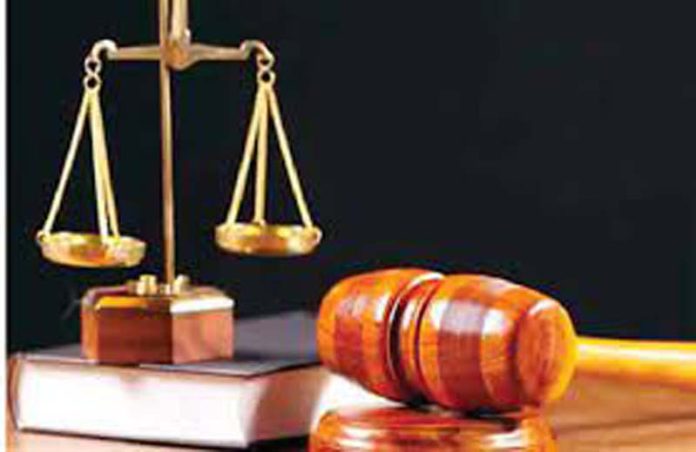Govt directed to work out rehabilitation package
Accord equal status, entitlements within next 6 months
Mohinder Verma
JAMMU, Feb 9: Bringing an end to “discretion engineered discrimination” on the part of successive Governments of the then State of Jammu and Kashmir, High Court of Jammu & Kashmir and Ladakh has directed the Government of India to treat 5300 displaced families of Pakistan-occupied Jammu and Kashmir of 1947 through their successors/legal heirs settled out J&K alike and equally with 26,319 displaced families settled in erstwhile State and consequently work out one time settlement rehabilitation package.
Further, High Court has directed the Government to accord same status and entitlements in their respective favour as held and enjoyed by 26,319 displaced families of PoJK of 1947 settled in erstwhile State of J&K and the needful should be done at the earliest and preferably within a period of next six months.
The bench of Justice Rahul Bharti was dealing with several writ petitions, which were filed with the shared theme: “Alike in pain and deprivation but disliked in relief and rehabilitation”. While the pain and deprivation of these 5300 uprooted and displaced families came to be assuaged in due course of time by the law of nature itself but remained un-assuaged by the lawmakers and lawmen all along compounding pain, suffering and deprivation to pass in inheritance even to next generations.
After hearing battery of lawyers appearing for the writ petitions and counsels for the respondents, Justice Rahul Bharti observed, “the transformation of constitutional status of the State of Jammu & Kashmir with coming into force of the Jammu & Kashmir Reorganization Act, 2019 has self-paved the way to the reliefs sought alike by the petitioners leaving this court just to guide the grant of reliefs claimed by the petitioners to be carried out by the Union of India by its own Constitutional commitment”.
Before the J&K Reorganization Act, 2019, the relationship of the State of Jammu & Kashmir and the Union of India was getting governed by restricted application of the Constitution of India leaving or reserving little say with the Government of India to intermeddle, interject or injunct the decision making, High Court observed, adding the response filed in the writ petitions on behalf of the Government of the State of Jammu & Kashmir obviously and expectedly was in objecting tone to the claims of outside Jammu & Kashmir State settled 1947 displaced families thereby rendering the Union of India, being one of three respondents, as a mute spectator to be a passive consenter.
High Court further observed, “now, after the Jammu & Kashmir Reorganization Act, 2019, the Government of India, through its Ministry of Home Affairs, has come to revise its response in the case from being a passive voice to become an active voice by registering its willingness to do the course correction in all respects and aspects beginning with in extending the one time settlement benefit of equal extent and amount in favor of 5300 displaced families PoJK 1947 being represented by the petitioners as being successors-in-interest/legal heirs as otherwise made available to 26,319 displaced families PoJK, 1947 who had stayed and settled in the erstwhile State of Jammu & Kashmir”.
“The mindset to exclude the known 5300 displaced families of PoJK 1947 not settled in the State of Jammu & Kashmir from getting any legal status and recognition got exhibited with legislation Jammu & Kashmir Displaced Persons (Permanent Settlement) Act, 1971”, High Court said, adding “just by text orientation of one definition in the Act, 5300 displaced families came to be disqualified legally from having any say and status in the State of Jammu & Kashmir notwithstanding their displacement from the princely State”.
Pointing towards decisions and orders of successive Governments of State of J&K, Justice Rahul Bharti said, “this court has reasons and basis to make a safe inference that the then Governments in J&K intentionally kept the displaced persons of PoJK settled outside out of purview of relief and rehabilitation package in exploit of being its domain of decision making admitting of no dictation from Government of India because of constitutional relationship”, adding “there was no legal basis but a political motive in keeping the displaced families settled outside J&K to remain out of the purview of the benefits of relief and rehabilitation package”.
“Now, the Government of India and the Government of the Union Territory of Jammu & Kashmir are on same page intending to extend the benefit even to these 5300 displaced families and their successors. It is equally pertinent to mention that out of Rs 2000 crore, an amount of Rs 1457 crore has been spent leaving an unutilized amount within the prescribed cap of which amount, the other displaced families of PoJK of 1947can be duly taken care of”, Justice Bharti said.
He further said, “even otherwise even if it requires an additional input of financial package for accommodating 5300 displaced families the Government of India would be well advised to bear the additional financial burden to ensure that no displaced family out of pool of 5300 displaced families of PoJK of 1947 is left out from soothing of their pain and suffering”.
Accordingly, High Court directed Government of India to treat 5300 displaced families of PoJK of 1947 through their successors/heirs settled outside the erstwhile State of Jammu & Kashmir alike and equally with the 26,319 displaced families of PoJK of 1947 settled in the erstwhile State of Jammu & Kashmir and consequently work out one time settlement rehabilitation package as made admissible to 26,319 displaced families.
High Court has further directed the Government to accord same status and entitlements in their respective favour as held and enjoyed by the 26,319 displaced families of PoJK of 1947 settled in the erstwhile State of Jammu & Kashmir and needful should be done at the earliest and preferable within six months.


